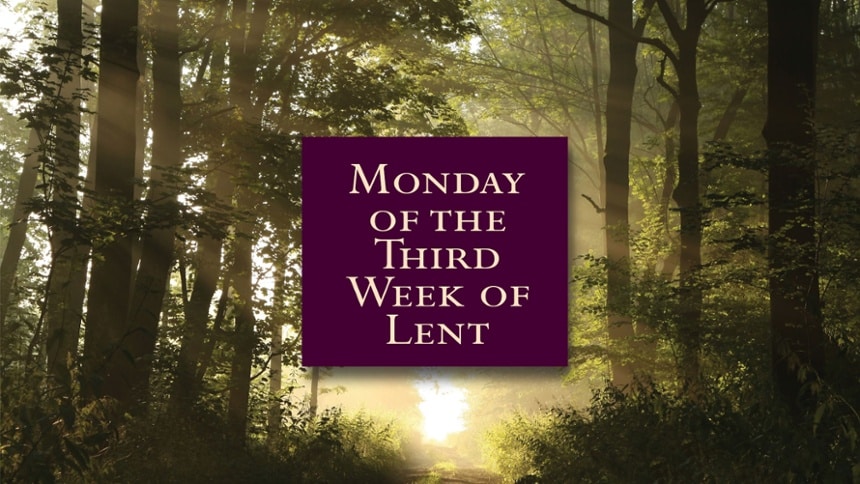Monday of the Third Week of Lent | Readings: 2 Kings 5:1, Luke 4:24-30
REFLECTION
Again, we are going to be exposed to two readings that utterly undercut our natural “groupishness”—two readings that laugh at our unwillingness to even allow God outside of our own assumptions, our tribe, and our definitions. The point is made so clearly in both that one wonders how we could have ever missed it.
The very telling First Reading from the second book of Kings sets up all the usual conflict (read “revelatory”) situations. Let’s list them here, and I think you can draw your own conclusion: There is Naaman (a Syrian commander), a leper, and not a Jew. A little slave girl is able to see where the spiritual power is and that it is to be found beyond their borders. Naaman wants the healing, but thinks money and his importance can buy it (later in verses 16–19 Elisha will refuse taking anything at all).>
Naaman comes to the prophet Elisha’s door, but then takes offense at the prophet himself who does not come out to meet him and at the prophet’s insulting suggestion to bathe in the Jordan’s miraculous waters instead of the waters of his own holy rivers in Syria. Naaman’s own servants have to convince him to comply. Finally, he is fully cleansed and healed of his leprosy, but almost entirely in spite of himself! Talk about “amazing grace” being avoided. Talk about someone being healed while missing all the invitations and promises. Naaman is a complete victim of grace! It chooses him; he never really chooses it. He lives inside of a world of propriety and predictability, as many of us do. Yet a very humble God works anyway.
And it is to this obscure story that Jesus refers to point out to his contemporaries that the insider often misses the grace, while the outsider gets it. So much so that God can often only go to the outsider, “No prophet gains acceptance in his own place,” he says. Then he points out that the prophet “Elijah was sent to the widow of Zarephath, a town in Sidon” (outside of Jewish territory). He more than suggests that it is often the outsider who crosses borders of prejudice to receive the gift, while you remain smugly inside your synagogues.
The ending is certain. “The whole audience in the synagogue was filled with indignation. They rose up and expelled him from the town, and led him to a cliff intending to hurl him over.” We will “kill God” if he is not our God, and does not say it in our way, and inside of our group’s language. Religion, which was supposed to be life and healing for the world, has too often become death and boundary-keeping for the few.
TODAY’S READINGS
Again, since the complete passages make the many points in full context, I ask you to read them for yourself in your Bible or Lectionary. Read 2 Kings 5:1–15 and Luke 4:24–30.
STARTER PRAYER
“God of Israel, Samaria, Sidon, and Syria, are you really all the same God? Can I allow you to be free, or should you follow our rules and our theology?”


